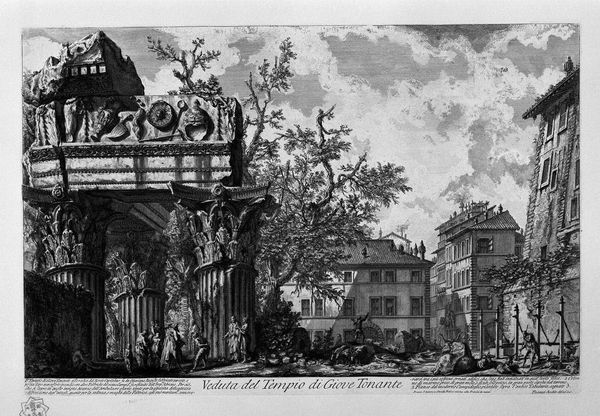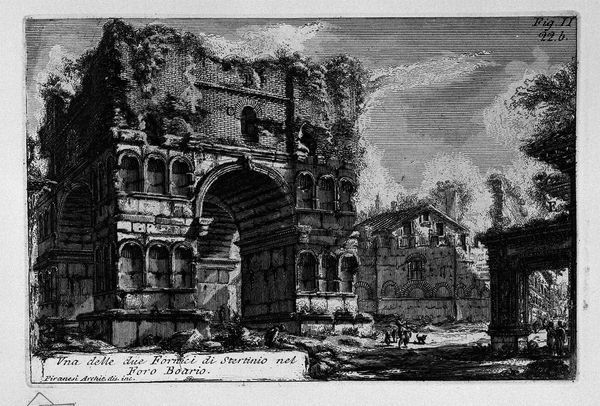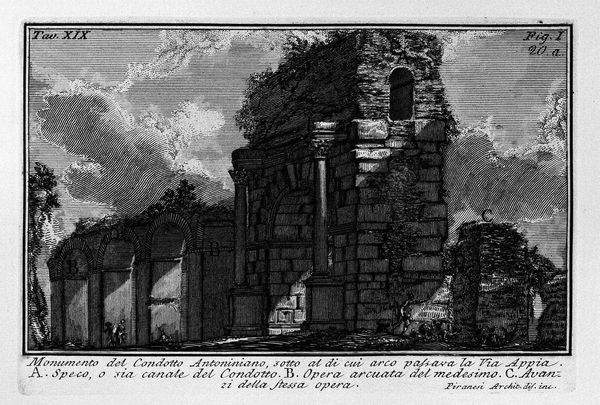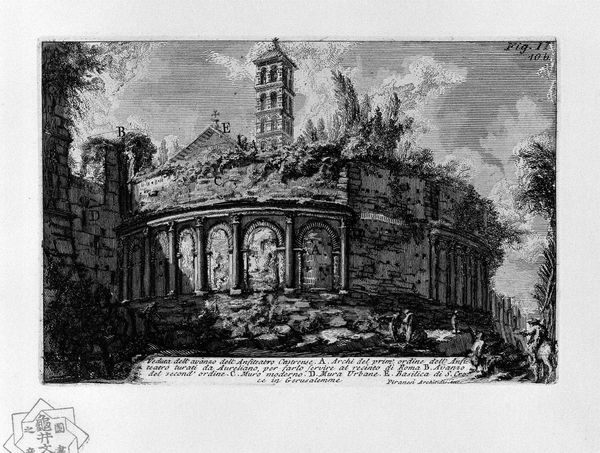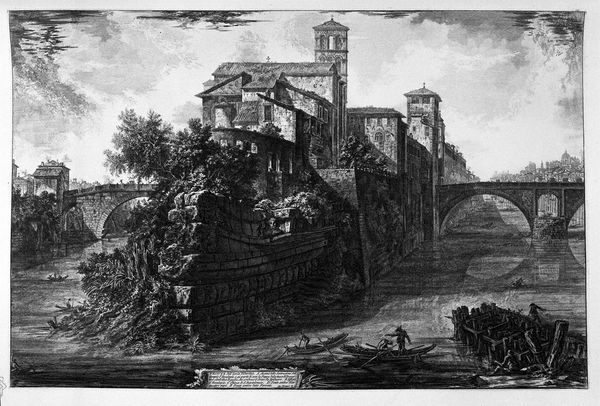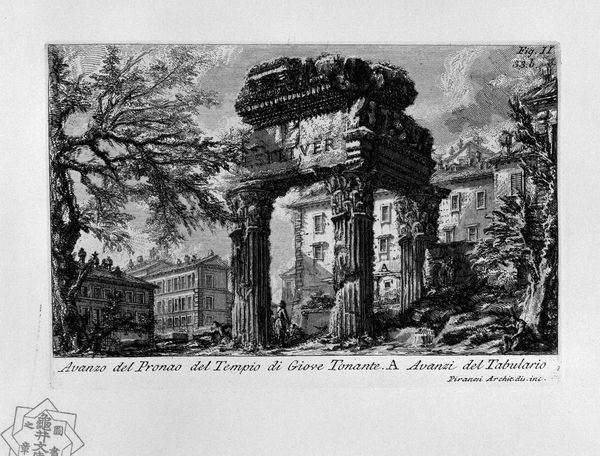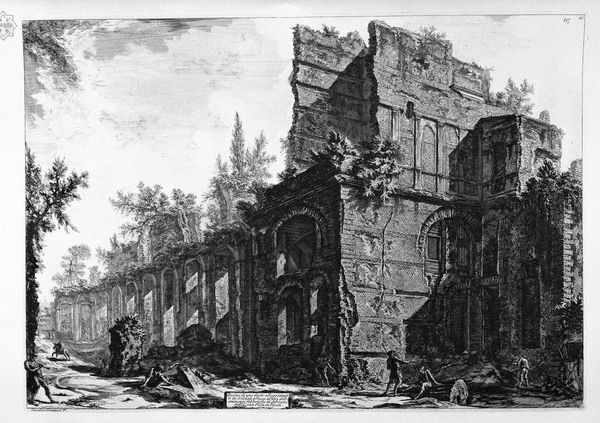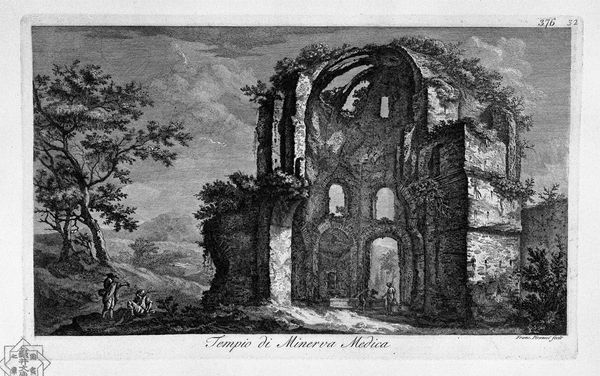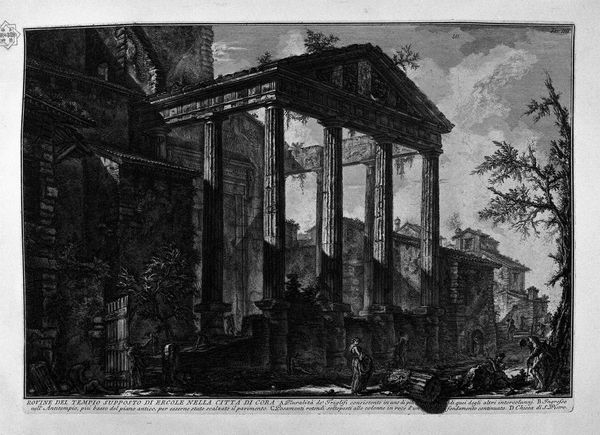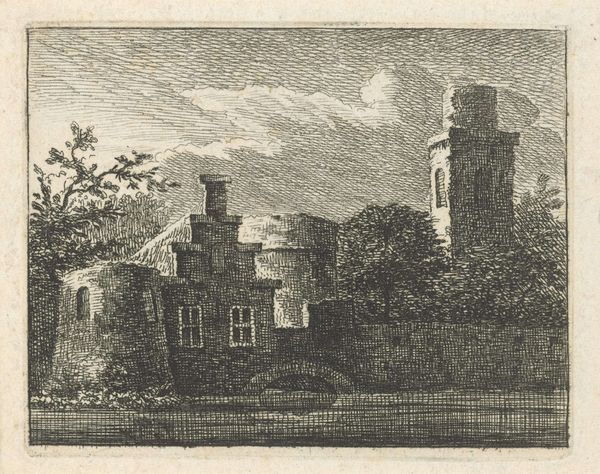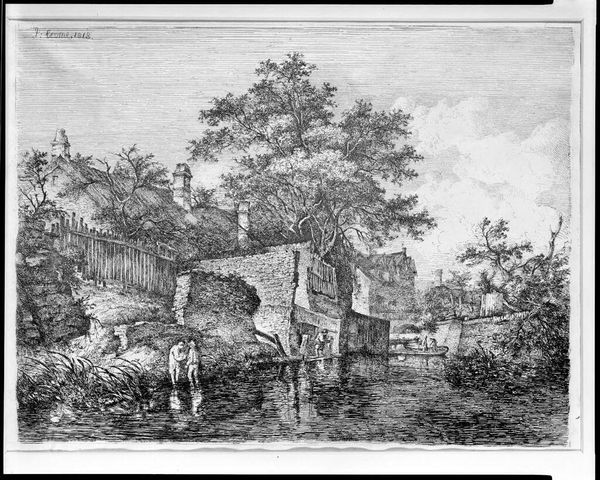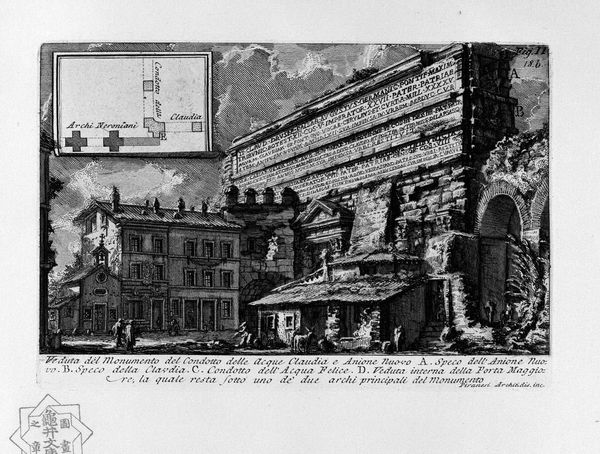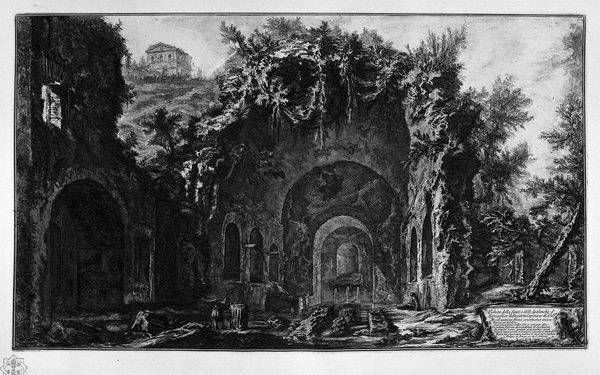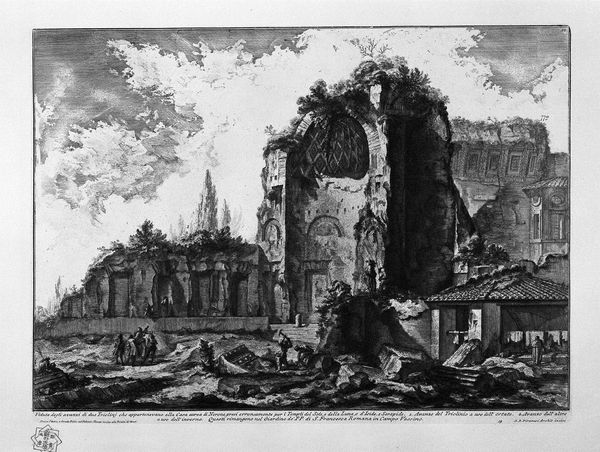
The Roman antiquities, t. 3, Plate XVIII. A view of the same mausoleum.
0:00
0:00
print, etching, engraving
# print
#
etching
#
sculpture
#
landscape
#
romanesque
#
ancient-mediterranean
#
black and white
#
history-painting
#
engraving
#
building
Copyright: Public domain
Editor: This engraving, "The Roman antiquities, t. 3, Plate XVIII. A view of the same mausoleum," by Giovanni Battista Piranesi, captures a very dramatic ruin. I find the contrast between the crumbling monument and the ordinary buildings striking. What's your take on it? Curator: It is like a stage set, isn’t it? Piranesi wasn't just documenting Roman antiquities; he was re-imagining them, investing them with a melancholic grandeur that mirrored his own romantic sensibility. Look at how the light catches the broken edges of the mausoleum. Does it remind you of something? Editor: Kind of like…a film noir? The shadows are so deep. Curator: Exactly! There's a cinematic quality, a heightened drama that goes beyond simple record-keeping. He's using the past to comment on the present, or maybe, suggesting that time is just a construct of perspective. Did you notice how small he renders the figures walking among the ruins? Editor: Yeah! It makes the buildings look gigantic and us insignificant. Curator: It does, doesn't it? The power of history against the brevity of human life. Piranesi really knew how to tug at the heartstrings. Editor: I’ve never thought of engravings being so…emotional, I guess. Curator: Piranesi reminds us that even in meticulous detail, there's room for poetry and raw, existential musings. It's about seeing not just *what* is there, but *feeling* what it means. Editor: This has completely shifted how I see prints. They’re not just copies; they’re interpretations. Thanks!
Comments
No comments
Be the first to comment and join the conversation on the ultimate creative platform.
